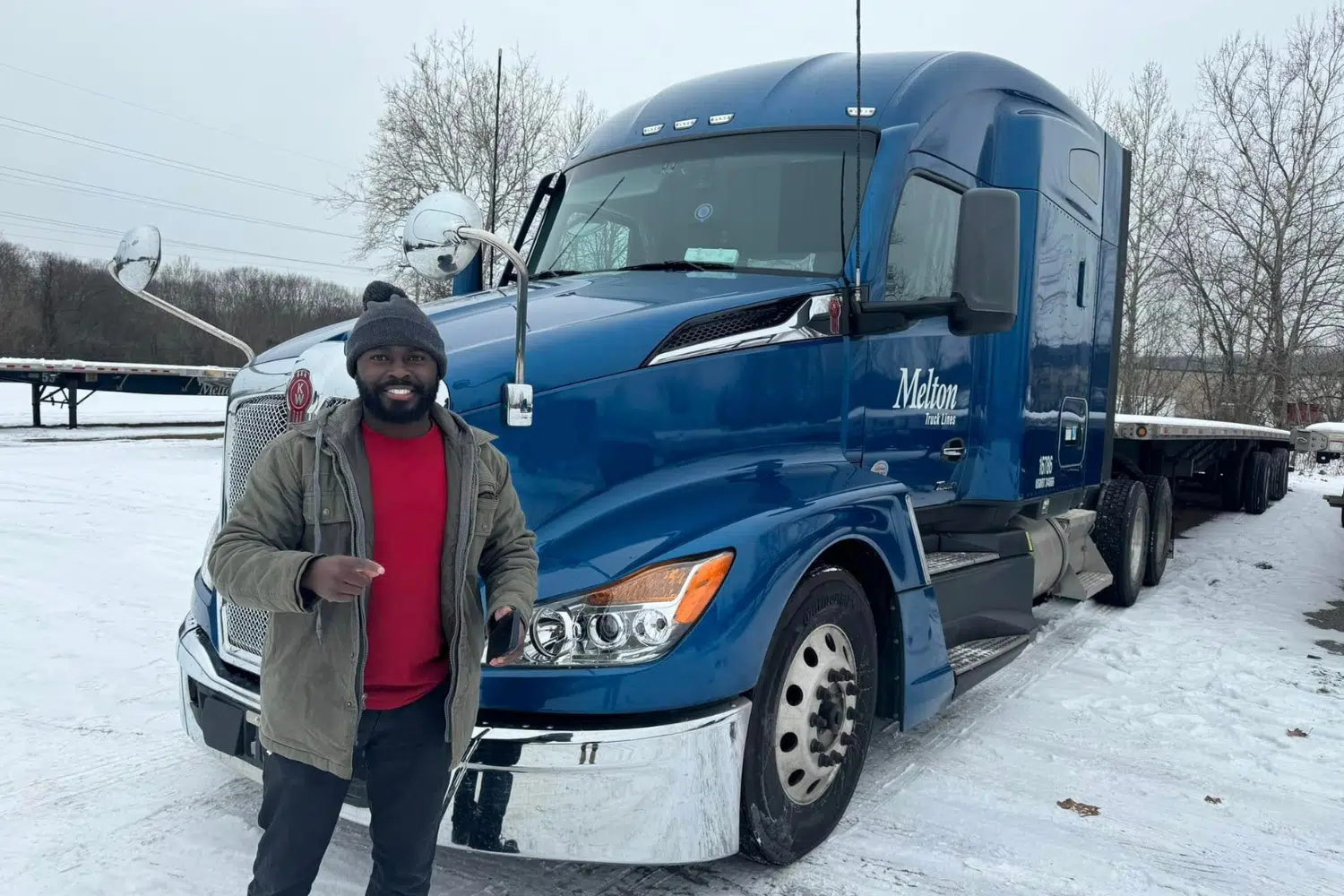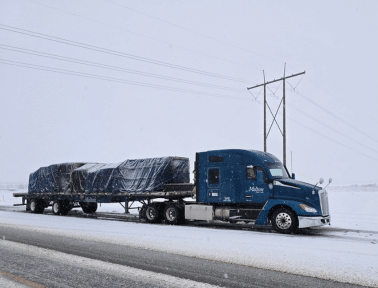
What to Expect on Your First OTR Trucking Assignment
Congratulations! You’ve earned your CDL-A, and your first long-haul assignment is right around the corner. It’s an exciting milestone, but it’s natural to feel anxious about what’s ahead, especially if it’s your first time running solo. The good news? With a little prep and some great training, you can set yourself up for a successful, safe, and rewarding run.
Let’s break down exactly how to prepare for your first long-haul run, from understanding your load to the post-trip inspection
What Should You Know About Your Assignment?
Before you ever turn the key, start by getting familiar with the details of your load assignment. The more you know, the smoother things will go.
Review All Your Load Details: To transport things safely and efficiently, you need to understand what you’re hauling. Is it temperature-sensitive freight? Oversized? Fragile? Know the specifics so you can plan accordingly. Study your route—whether it’s mostly highways or includes tricky city driving—and identify any restricted roads or bridges along the way.
Confirm Delivery Times and Additional Expectations with Dispatch: Communicate with your dispatcher to confirm pick-up and delivery windows. Be clear about any expectations, whether it’s drop-and-hook, live load, or unloading with assistance. Knowing the timeline helps you manage your hours of service (HOS) and avoid unnecessary stress.
If something isn’t clear? Clarify it before you move out. Clarification in advance can save you additional time spent on delays.
Is Your Truck Ready for the Trip?
You can’t do your job if your equipment isn’t up to the task. A well-maintained truck is key to safety and success.
Your Pre-Trip Inspection: Check tires for proper pressure and tread, test your brakes, and verify all lights are working. Check all your fluid levels; oil, coolant, washer fluid, and ensure your load is properly secured. If you spot something questionable, address it before you roll.

Make Sure You’ve Got the Tools for the Trip: Have a good flashlight, reflective triangles, and other safety supplies on hand. Don’t forget emergency supplies, jumper cables, a fire extinguisher, a first aid kit, and additional blankets in the fall/winter months. Better to have it and not need it, than need it and not have it!
What Should You Pack for the Road?
Packing smart can help make life on the road more comfortable and less stressful in the long run, but you always want to be considerate of the storage space in your cab. A good rule of thumb is to always keep just a little extra space in your bag ‘just in case’. But here are some essentials:
Bring Essential Clothing for the Season, Toiletries, and Comfort Items: Weather can change fast, so always aim to pack an outer and an inner layer: long sleeve shirts, rain gear, and sturdy boots are must, depending on the season. Don’t forget essentials like toothpaste, soap, towels, and any prescriptions (you can always pick up more at rest stops, but bringing it from home will save you money in the long run). Comforts like a favorite pillow, blanket, or personal entertainment can make your cab feel more like home.
Pack Snacks, Water, and Meals to Stay Fueled and Save Money: Healthy snacks like nuts, protein bars, and pre-cut fruit help keep your energy up. Cooking gear like a small slow cooker or portable stove can help you save money and eat healthier. Cooking for yourself on the road will save you plenty of money throughout the week, so don’t be afraid to invest in great quality equipment. Check out some healthy meal and snack ideas for truckers in this blog.
How Can You Plan for Safety and Comfort?
Planning ahead can make your trip safer and more enjoyable.
Map Out Rest Areas and Truck Stops for Breaks and Overnight Stays: Using apps specifically designed for truckers to find reliable truck stops with ample parking and facilities can be a great help in this area. Knowing where you’ll take your breaks reduces stress and helps you stay compliant with HOS regulations. It’s also a great way to see what other drivers are experiencing in different locations, so you can be prepared.
Monitor Weather Conditions and Have a Backup Plan: Check the forecast before and throughout your trip. Be prepared for bad weather with chains (if needed), extra blankets, first aid kits, and a full fuel tank. If you need to stop unexpectedly, always prioritize safety over deadlines.
How Can You Stay Mentally and Physically Ready?
Long hours behind the wheel can be tough on your body and mind. Take care of both!
Manage Stress with Regular Communication and Entertainment during Downtime: Keep in touch with family and friends; it makes the miles go faster. Audiobooks, podcasts, or music playlists can help pass the time, and downtime activities like journaling or a hobby can keep your mind fresh.
Prioritize Rest, Hydration, and Balanced Meals to Stay Alert: Never sacrifice sleep, fatigue is a major safety risk amongst drivers. Eat meals that give you lasting energy and drink plenty of water (especially during summer). It may also help to exercise during your downtime to ensure you’re not sedentary all the time. No need to overdo it; a 30-minute walk will do the trick!
What Should You Focus on During the Assignment?
Alright, you’ve planned, you’re packed, and everything is prepped- it’s go time!
Stick to Your Route Plan but Stay Flexible: While it’s important to follow your planned route and schedule, things happen. Traffic jams, weather delays, or customer requests may require adjustments. Stay calm, stay professional, and adapt as needed.

Communicate Progress and Challenges with Dispatch or Driver Manager: Regular updates to dispatch help everyone stay on the same page. If you run into delays, mechanical issues, or other challenges, communicate early and clearly. It builds trust and keeps operations smooth.
What Can You Learn from Completing Your Run?
Every assignment teaches you something. Reflect on it. After your run, follow up your rig with a thorough post-trip inspection, checking items similarly to how you did during your Pre-Trip, but noting down anything that may have changed, and getting your maintenance team involved should it need a fix.
From there, take the time to think about what worked. Did you pack everything you needed? Were there surprises on the route you didn’t anticipate? Make notes for the next time you’re ready to hop on board and test out new things that could work for you.
Talk to your dispatcher or more experienced drivers in your circle. Ask for constructive feedback, tips and tricks that they may have learned along the way, and be open to learning. Every trip makes you a better driver, but it’s always great to take advice from those who’ve been on a few more trips than yourself.
Your first long-haul assignment is just the beginning of what can be a long and rewarding career. Preparation builds confidence, and confidence leads to success. Take the time to do it right, and you’ll be well on your way to becoming a pro behind the wheel in no time at all. Safe travels out there!
Ready to kickstart your OTR career? Melton is looking for drivers like you; visit our flatbed driving jobs page to learn more.
